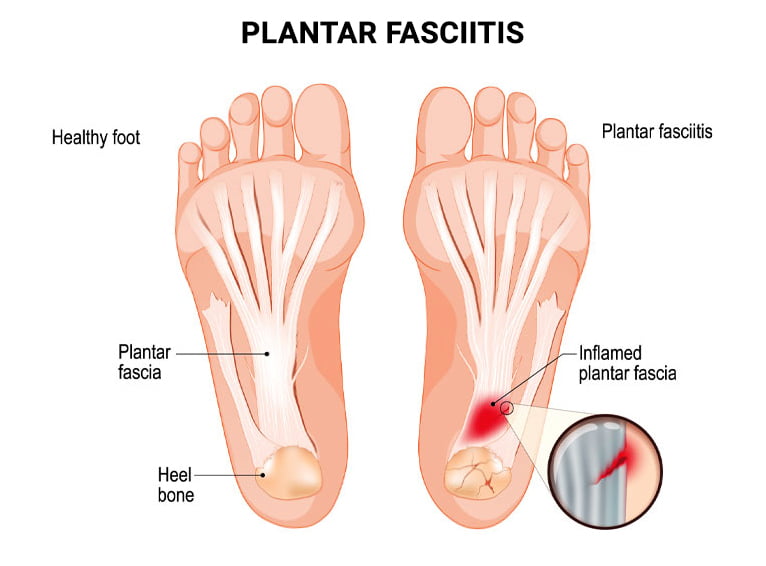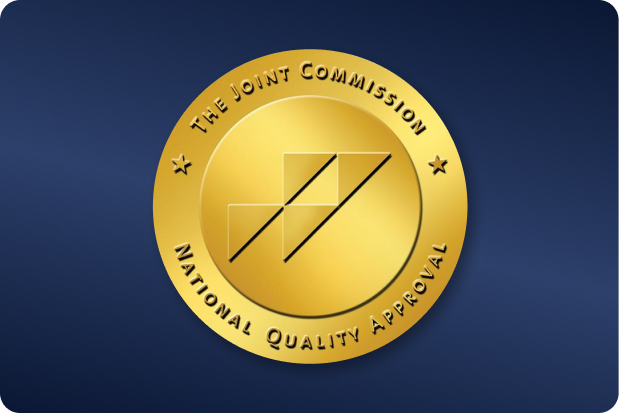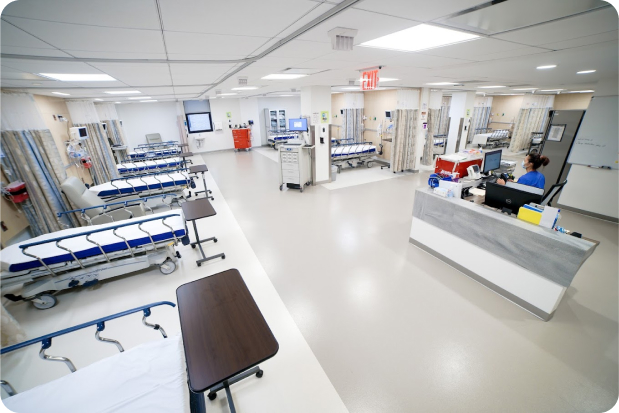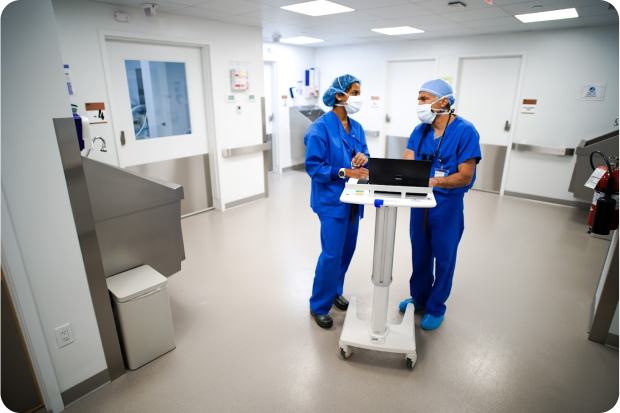 Same-day Appointments Book Online
Call to book 201.523.9590
Same-day Appointments Book Online
Call to book 201.523.9590
 Same-day Appointments Book Online
Call to book 201.523.9590
Same-day Appointments Book Online
Call to book 201.523.9590
Table of contents
Plantar Fasciitis is common among athletes, runners and people who exercise or walk regularly. Other factors that contribute to the development of Plantar Fasciitis are weight and the type of shoes that a person wears.
Plantar fasciitis can lead to pain in the heel, which is worse when you take the first steps in the morning, or after you’ve been sitting for a long time. The symptoms tend to get better when you are more active, however, they get worse if you spend a long time on your feet.

The fascia supports the muscles and arches of your feet. However, when overly stretched, it can lead to tiny tears on the surface. This can lead to pain and inflammation. Some people are at a greater risk of suffering from plantar fasciitis, such as those who are 40 to 60 years old, are obese, have flat feet and high arches, have tight Achilles tendons, walk unusually of have an unusual foot position, often wear shoes with high heels and those who spend a lot of time standing every day. Women are more affected by plantar fasciitis than men.
Your doctor will ask you about the symptoms that you have been experiencing and to check your feet and check whether they hurt or not. Sometimes you might need imaging tests to make sure that there isn’t any other condition that leads to the pain. These tests include MRI, which checks for fractures or an X-ray which can rule out bone fractures and arthritis.
 Amr Hosny, MD, MBA, FASA
Book Now
Amr Hosny, MD, MBA, FASA
Book Now
 David Chu, MD, FAAPMR
Book Now
David Chu, MD, FAAPMR
Book Now
 Vivek Mehta, MD, FAAPMR
Book Now
Vivek Mehta, MD, FAAPMR
Book Now
 Deepali Gupta, MD, DABA, DABPM
Book Now
Deepali Gupta, MD, DABA, DABPM
Book Now


There are some lifestyle changes that you can make, which can help you to prevent plantar fasciitis from recurring, such as losing weight, wearing shoes that provide you with good support, avoiding wearing high heels, not walking barefoot on hard surfaces, doing only low-impact exercises, such as swimming and cycling, avoiding high-impact activities, such as running or jumping, doing leg and foot stretches and even untucking your bedsheets. This change in your bedsheets can help because when sheets are tucked too tightly, it will keep your feet in a pointed position while you’re sleeping.
Some people try home remedies first, to see whether this can help reduce the inflammation and pain before turning to medicine and other, more invasive treatment options. When the pain first appears, it is recommended to keep off the injured foot, rest it for a couple of days, ice the area for 20 minutes at a time, which helps to relieve inflammation, to compress the area with a soft wrap, which reduces swelling and to elevate the area, which can particularly help if you do it while you’re sleeping. This is the so-called RICE method.
Wearing shoe inserts can provide additional support to the arch of the foot, which is especially helpful for those who have to stand a lot during their day. Some patients say that massage has helped them with their plantar fasciitis symptoms. Typically, the arch of the foot around the injured area is massaged, but if the surrounding muscles are also tense due to the pain, those should be massaged too. Some people find it very relieving to massage the arch of the foot with the use of an ice bottle.
It has been a longtime coming here since my accident. My shoulders, lower back and feet have been bad throughout the years. Dr. Hosny and staff have helped me tremendously over the years with all the procedures I have had over the years. Right now still having some back pain but nothing like it was when I first came. Also the numbness in my feet and toes are still here.
I have not seen Dr. Hosny for check ups in a very longtime. Would like to see him to let me know what else we can do to get better. Everything over the past year has been with Dr. Methia. Would like to see Dr. Hosny once and a while. I hope to get even better in the near future.
Thank You
Ray DJ R. T. ★★★★★I've had recurrent plantar fasciitis problems for many years. Dr. Musto spent time learning about my case and thoroughly outlining what was happening step by step. I am quite happy with the strategy she came up with to take care of it. The office staff was kind and showed interest in what I was going through. I'll be returning to finish my therapy and I'll unquestionably recommend it to my friends and family members.
John R.The team of Board Certified Pain Management Specialists at The Spine & Rehab Group, with experience in podiatry-focused foot care, are highly trained in the effective treatment of plantar fasciitis pain and foot pain.
Plantar Fasciitis treatment is available in our Manhattan and New Jersey locations and may include:
Physical Therapy – The team of Physical Therapists will create a custom plantar fascia treatment plan to help relieve your plantar fasciitis pain. Physical therapy can help strengthen the plantar fascia as well as the muscles in the leg to better support your feet.
Orthotics – Your physical therapist of foot pain doctor may recommend custom fit Orthotics to be placed inside your shoes to support your feet, ankles, calves and knees.
Interventional Pain Management – Non-surgical pain management procedures may be recommended in cases of Plantar Fasciitis that cause severe pain. Steroid injections are helpful for not only the relief of foot pain but to reduce inflammation
Anti-Inflammatory Medication – The use of anti-inflammatory medication, or NSAIDs, may be recommended to decrease inflammation of the plantar fascia and reduce pain.
Our doctors in both NYC and NJ are skilled in the diagnosis and effective treatment of plantar fasciitis. During your initial consultation and evaluation, diagnostic testing may be requested. X-rays are provided in the office.

Dr. Hosny is a distinguished physician, educator, and healthcare leader with a commitment to advancing health equity and accessibility in the rapidly evolving landscape of modern healthcare. After completing his residency at St. Luke's Roosevelt Hospital Center, affiliated with Columbia University in New York City, he pursued an Interventional Spine Fellowship at Beth Israel Deaconess Medical Center, part of Harvard Medical School in Boston, MA.
Dr. Hosny has held prominent roles in academic medicine, including serving as an Associate Clinical Professor at New York Medical College and as the Interventional Spine Fellowship Program Director. These positions reflect his dedication to mentoring the next generation of healthcare professionals and advancing the field of interventional spine care.
More About Dr. HosnyThe Spine & Rehab Group
140 NJ-17,
Paramus, NJ 07652
(212) 242-8160



